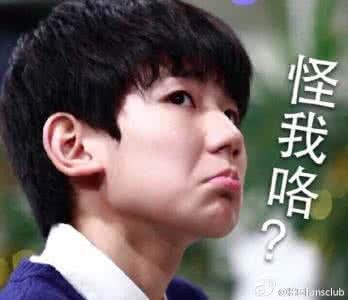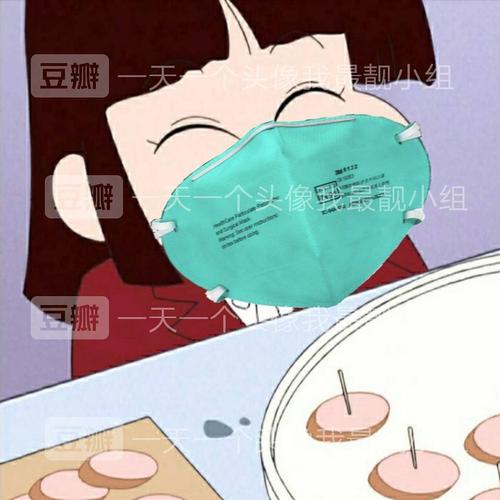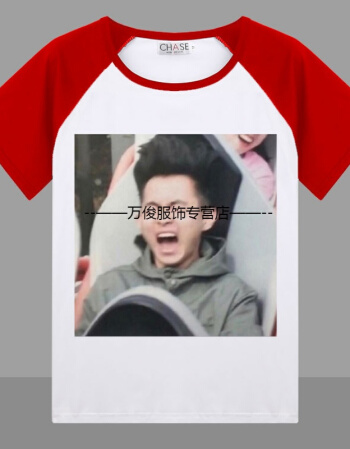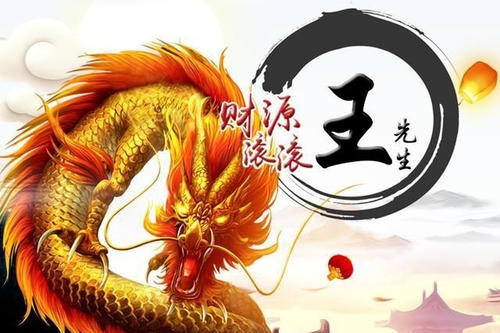2017考研英语一翻译真题解析
 方其梦也
方其梦也 藏金于山
藏金于山
去百度文库,查看完整内容>内容来自用户:跨考考研2017考研英语一翻译真题解析跨考教育英语教研室—王坤2017年考研英语一的翻译题型部分,整体来说难度不大,与2016年难度基本持平,考察的是英语语言发展情况,文章选自英国文化教育协会的一本书,叫《英语下一步》。英语一的考题是此书的序言部分。下面就是跨考英语教研室的英语老师对2017年考研英语一翻译真题的最新解析和参考译文。(46)But even as the number of English speakers expands further there are signs that the global predominance of the language may fade within the foreseeable future.参考译文:但是,尽管使用英语者的人数在不断增加/说英语的人越来越多,却仍然有迹象表明,英语语言的全球主导地位在不久的将来/可预见的未来也许会慢慢衰退。句子解析:本句很简单,主句是there be结构,主句前是让步状语,signs后面是that引导的同位语从句,对signs进行进一步的补充说明。同位语从句中是主谓结构,the global predominance of the language是主语,may fade是谓语,within结构是时间状语。expands的词义不应该选择常用的“扩展”意思,而应该结合前面和它搭配的number,而选择“增加”的意思。(47)His analysis should therefore end any self-contentedness among those who may believe that the global position of English is so stable that the young generation of the United Kingdom do not need additional language capabilit
2021年考研英语一翻译真题解析
 丘也眩与
丘也眩与 鬼神不扰
鬼神不扰
2021年考研英语一翻译真题解析:Part C: Read the following text are fully and then translate the underlined segments into Chinese. Your translation should be written neatly on ANSWER SHEET 2.( 10 points)46. Those societies came out of the war with levels of enrollment that had been roughly constant at 3%-5% of the relevant age groups ring the decades before the war.【解析】1.这句话主干为Those societies came out of the war.2. with levels of enrollment是介宾短语作状语;3. that had been roughly constant at 3%-5% of the relevant age groups是定语从句修饰前面levels of enrollment.【参考译文】战争结束后,这些社会的入学率仍旧保持在战前几十年里相关年龄段的3%-5%。47. And the demand that rose in those societies of entry to higher ecation extended to groups and social classes that had not thought of attending a university before the war.【解析】1. 这句话主干为the demand extended to groups and social classes,其中extended为谓语动词;2. that rose in those societies of entry to higher ecation定语从句修饰demand;3. that had not thought of attending a university before the war定语从句修饰前面groups and social classes.【参考译文】那些社会中对获得高等教育的需求不断上升,战前没有想过上大学的群体和社会阶层也逐步有了这样的需求。48. In many countries of western Europe, the numbers of student in higher ecation doubled within five-years periods ring the 1960s and doubled again in seven, eight or 10 years by the middle of 1970 s.【解析】这句话主干为the numbers of student in higher ecation doubled and double again,In many countries of western Europe为地点状语,其他部分为时间状语从句。【参考译文】20世纪60年代,许多西欧国家接受高等教育的学生人数在5年内翻了一番,到70年代中期,在7年、8年或10年里又翻了一番。49. and when the new staff are predominantly young men and women fresh from past graate study, they largely define the norms of academic life in that faculty.【解析】这句话主干为they largely define the norms of academic life in that faculty,when引导的是时间状语从句;其中fresh from past graate study是形容词短语修饰men and women。【参考译文】新员工当中大部分是刚毕业的年轻男女时,他们在很大程度上定义了该院的学术生活规范。50. High growth rates increased the chances for academic innovation, they also weakened the forms and process by which teachers and students are admitted into a community of scholars ring periods of stability or slow growth.【解析】1.这句话主干是一个并列句为High growth rates increased the chances for academic innovation, they also weakened the forms and process;2. by which teachers and students are admitted into a community of scholars ring periods of stability or slow growth定语从句修饰forms and process.【参考译文】高增长率增加了学术创新的机会,同时也削弱了教师和学生在稳定或缓慢增长时期加入学者群体的形式和过程。2021年考研英语一翻译真题解析的内容小编就说到这里了, 关于考研备考技巧,报名入口,考研报名时间,考研成绩查询,考研报名费用,准考证打印入口及时间等问题,小编会及时更新。希望各位考生都能进入自己的理想考研院校。希望大家能好好复习。取得佳绩。
做考研英语的真题阅读85%的单词不会查了翻译了全文还是读不懂答题几乎都不对 我该怎么学下去 请教学习方法
 不老屯
不老屯 无毁无誉
无毁无誉
我和你我四级不到四百分,考研英语57分,虽然不是很高但是我已经很满意了。 首先要克服单词难关,单词每天多看,反复、重复,尽量缩短背完所有单词的周期,一轮一轮不断重复,不要担心忘记,其实单词就是忘了背、背了忘,不断重复记忆的过程,要跟它们至少混成脸熟。 其次要精读考研阅读,“得真题者得天下”,反复做,第一遍自己做错了没关系,再做一遍,看答案知道文章大意之后再浏览文章。 另外,你可以在有一定单词基础上报个辅导班,可以学到老师的方法,走一个捷径,希望可以采纳~~
怎么可以找到英语考研真题的翻译1997年
 亦趋
亦趋翻译硕士英语的历年真题怎么找
 李塨
李塨 老聃
老聃
1980-2013年考研英语历年真题集含答案解析地址:http://wenku..com/view/27dbee3b3968011ca30091f1.html?re=view*******************************您好,答案已经给出,请您浏览一遍有什么不懂的地方欢迎回复我!如果满意请及时点击【采纳回答】按钮或者客户端的朋友在右上角评价点【满意】您的采纳,是我答题的动力也同时给您带来知识和财富值***************************************************
跪求 考研历年真题阅读的全篇翻译 谢谢
 乃凝于神
乃凝于神 大瑟尔
大瑟尔
建议你去找本真题解析,最好不要看什么翻译,历年真题最好要把他读透但不是看翻译看出来的,和我一起考研的一个同学,他四级没有过,就是硬啃把真题啃出来的(最后考研考了58分),一遍不懂就两遍。真题的阅读到了后期还有用,你如果现在就看了翻译,你以后就会自然而然的背起中文翻译了,多么浪费而且危险啊!!英语是靠慢慢积累的,建议现在不要做真题,这是考研英语最重要的参考资料之一,留到中后期再做(9月份以后)。你现在如果还读不懂真题,建议你先背单词,并每天尝试做两篇阅读理解。相信9月份就不会要翻译书了你一搜索 到处都是
2012年考研英语二真题全文翻译答案超详解析
 令箭
令箭 七气
七气
去百度文库,查看完整内容>内容来自用户:quanhanzhou2012年全国硕士研究生入学统一考试英语(二)试题答案与解析Section I Use of English一、文章题材结构分析本文是一篇关于人物介绍的说明性文章,主要讲述了G. I. Joe由普通人成长为英雄,是美国特种兵敢死队的象征。二、试题解析1.【答案】B【解析】本段开篇提出主题:G. I. Joe这个名字对于参加过第二次世界大战的人来说意义非凡。空格中需要填动词,在定语从句中做谓语,其主语是who(指代men and women),动作发生的地点是in World War II;空后的句子“the people they liberated”中they也指代men and women,他们有liberate的动作,由此推断“the men and women”指的应该是参加了第二次大战的男人和女人,即服役的军人。只有serve有“服兵役”的意思,所以选B。A项perform意为“表现;执行;表演”;C项rebel意为“造反,反抗”;D项betray意为”背叛,出卖”,皆不符合文意,为干扰项。2.【答案】B【解析】空格处所指的人与下文的the poor farm kid和the guy在含义上呼应,同时与空格后的“grown intohero”逻辑含义应保持一致,因此空内信息应该是与hero“英雄”意思相对,后面的分句说他背井离乡,经历了很多苦难,显然这里应该是说由普通人平凡人(common man)成长为英雄,所以选B。A项actual意为“实际上,事实上的”;语是81215这些食物的名词。四个选项中些工人阶层的名字。美国从未出现过叫“尤
考研英语真题阅读怎么做
 梦非梦
梦非梦 艾琳娜
艾琳娜
以个人往年的经验,为你分享三步做真题的阅读方法:第一步:做真题、对答案初步接触考研英语阅读真题时,大家可以抛开时间观念,别卡时间,认认真真地做完即可。做完之后,要对照真题给出的答案解析,理解对错的具体原因,在原文中找到解题域和关键词。按照这个步伐做完5套真题之后, 启道考研 建议大家为自己规定一个做题时间,比如按照考试时间来做,即70-80分钟之内搞定4篇阅读理解,因为真正考试时做题速度非常关键。第二步:整理生词、词组大家可以利用词典将自己做题过程中遇到的生词、词组查出来,然后整理到笔记本上,这个词汇本是后期要反复看的,目的是维持并增加词汇量。真题中有大量的固定搭配,这些大家也是需要记忆的,后期大家还可以将生词和词组进行归类,分为经济词汇、法律词汇、科技词汇等,闪光的词组还可以运用到写作当中,词组的掌握还能搞定为翻译题目储备足够多的知识。第三步:翻译真题,整理长难句做完题目之后要对原文进行翻译,翻译时无需逐字逐句,但要将“解题域”部分的长难句准确无误地翻译出来。通过这个过程纠正自己的翻译思维,提高翻译能力。如果翻译的不正确,别气馁,努力找出原因并加以改正。
跪求2010年考研211翻译硕士英语真题一套。
 雷维龙
雷维龙 重写本
重写本
以下是上外2010年翻译硕士(MTI)考试的真题,贴出来你看看吧 【翻译硕士二外】一、完形填空(全文录入,题目省略)During the first many decades of this nation’s existence, the United States was a wide-open, dynamic country with a rapidly expanding economy. It was also a country that tolerated a large amount of cruelty and pain — poor people living in misery, workers suffering from exploitation.Over the years, Americans decided they wanted a little more safety and security. This is what happens as nations grow wealthier; they use money to buy civilization.Occasionally, our ancestors found themselves in a sweet spot. They could pass legislation that brought security but without a cost to vitality. But alts know that this situation is rare. In the real world, there’s usually a trade-off. The unregulated market wants to direct capital to the proctive and the young. Welfare policies usually direct resources to the vulnerable and the elderly. Most social welfare legislation, even successful legislation, siphons money from the former to the latter.Early in this health care reform process, many of us thought we were in that magical sweet spot. We could extend coverage to the uninsured but also improve the system overall to lower costs. That is, we thought it would be possible to rece the suffering of the vulnerable while simultaneously squeezing money out of the wasteful system and freeing it up for more proctive uses.That’s what the management gurus call a win-win.It hasn’t worked out that way. The bills before Congress would almost certainly ease the anxiety of the uninsured, those who watch with terror as their child or spouse grows ill, who face bankruptcy and ruin.And the bills would probably do it without damaging the care the rest of us receive. In every place where reforms have been tried — from Massachusetts to Switzerland — people come to cherish their new benefits. The new plans become politically untouchable.But, alas, there would be trade-offs. Instead of recing costs, the bills in Congress would probably raise them. They would mean that more of the nation’s wealth would be siphoned off from proctive uses and shifted into a still wasteful health care system.The authors of these bills have tried to foster efficiencies. The Senate bill would initiate several interesting experiments designed to make the system more effective — giving doctors incentives to collaborate, rewarding hospitals that provide quality care at lower cost. It’s possible that some of these experiments will bloom into potent systemic reforms.But the general view among independent health care economists is that these changes will not fundamentally bend the cost curve. The system after reform will look as it does today, only bigger and more expensive.Rather than pushing all of the new costs onto future generations, as past governments have done, the Democrats have admirably agreed to raise taxes. Over the next generation, the tax increases in the various bills could funnel trillions of dollars from the general economy into the medical system.Moreover, the current estimates almost certainly understate the share of the nation’s wealth that will have to be shifted. In these bills, the present Congress pledges that future Congresses will impose painful measures to cut Medicare payments and impose efficiencies. Future Congresses rarely live up to these pledges. Somebody screams “Rationing!” and there is a bipartisan rush to kill even the most tepid cost-saving measure. After all, if the current Congress, with pride of authorship, couldn’t rece costs, why should we expect that future Congresses will?The bottom line is that we face a brutal choice. Reform would make us a more decent society, but also a less vibrant one. It would ease the anxiety of millions at the cost of future growth. It would heal a wound in the social fabric while piling another expensive and untouchable promise on top of the many such promises we’ve already made. America would be a less youthful, ragged and unforgiving nation, and a more middle-aged, civilized and sedate one.We all have to decide what we want at this moment in history, vitality or security. We can debate this or that provision, but where we come down will depend on that moral preference. Don’t get stupefied by technical details. This debate is about values. 二、阅读理解,回答问题Obama Loses a Round While the jury is still out on what President Obama’s China visit has achieved for the long term, the president has most decidedly lost the war of symbolism in his first close encounter with China. In status-conscious China, symbolism and protocol play a role that is larger than life. U.S. diplomatic blunders could reinforce Beijing’s mindset that blatant information control works, and that a rising China can trump universal values of open, accountable government.During Mr. Obama’s visit, the Chinese outmaneuvered the Americans in all public events, from the disastrous town hall meeting in Shanghai to the stunted press conference in Beijing. In characteristic manner, the Chinese tried to shut out the public, while the U.S. unwittingly cooperated. The final image of President Obama in China that circulated around the world is telling: A lone man walking up the steep slope of the Great Wall. The picture is in stark contrast to those of other U.S. presidents who had their photographs taken at the Great Wall surrounded by flag-waving children or admiring citizens. Maybe Mr. Obama wanted a quiet moment for himself before returning home. But a president’s first visit to the wall is a ritual that needs to be properly framed. Mr. Obama could have waited until the next visit, when he could bring the first lady and the children. Instead, he went ahead by himself to pay tribute to China’s ancient culture. In return, the Chinese offered nothing, no popular receptions, not even the companionship of a senior Chinese leader.The trouble for the U.S. started at the town hall meeting two days earlier — a more scripted event than those organized with students for earlier U.S. presidents. There was no real dialogue, as a programmed audience, most of them Communist League Youth members, asked coached questions. The Chinese also rejected the U.S. request for live national coverage and defaulted on a promise to live-stream the meeting at Xinhua.net, the online version of China’s state-owned news agency. Mr. Obama scored a point when he managed to address the issue of Internet freedom after the U.S. ambassador, Jon Huntsman, fielded him the question from a Chinese netizen submitted online.Meanwhile, Chinese officials garnered from the meeting generous quotes from Mr. Obama affirming China’s achievements and America’s expressions of good will, which were turned into glowing headlines for the Chinese media. In this round of the propaganda skirmish, the U.S. scored one point while China reaped a handful. Mr. Obama was similarly shut out from addressing the public in Beijing. At the Beijing press conference, President Hu Jintao and President Obama read prepared statements and would not take questions from reporters. “This was an historic meeting between the two leaders, and journalists should have had the opportunity to ask questions, to probe beyond the statements,” protested Scott McDonald, the president of China’s Foreign Correspondents Club, but to no avail. In a final dash to break through the information blockade, the Obama team offered an exclusive interview to Southern Weekend, China’s most feisty newspaper, based in Guangzhou. Once again, journalists’ questions were programmed and the paper censored. In protest, the paper prominently displayed vast white spaces on the first and second page of the edition that carried the interview. Propaganda officials are investigating this act of defiance.Only the Obama team knows for sure how they allowed themselves to be outmaneuvered. Unwittingly, the U.S. helped to proce a package of faux public events.Pundits argued that the visitors were not supposed to impose the “American way” on China and that America needs to respect Chinese practices. The argument is both patronizing and condescending. Increasingly, the Chinese public has been clamoring for greater official transparency and accountability, while the Chinese government has been making progress on these fronts. No one in his right mind would ask Mr. Obama to lecture Beijing on human rights. But the Chinese public deserves better accounting, no less than Americans citizens.To their credit, U.S. officials did try to get their message out online. But it was the Chinese bloggers who were most active in challenging official information control. They at least fought the good fight with growing confidence, a fight the Americans seem unable to wage effectively. 三、写作。题目是 《waste not, want not》 【英语翻译基础】一、名词解释MDGS Millennium Development Goals 千禧年发展计划Ban Ki-moon 潘基文国务卿 Secretary of State雷曼兄弟(Lehman Brothers)次贷危机subprime lending crisis西部大开发战略strategy of western development 二、英译中China's bubblesA lot of things in China carry a whiff of excess. The cost of garlic is among them: wholesale prices have almost quadrupled since March. A halving of the planting area last year, and belief in the bulb's powers to ward off swine flu, provide some justification for the surge. But anecdotes of unbridled trading activity in Jinxiang county, home to China's largest garlic plant, suggest that the most likely cause is the most obvious – the abundant liquidity swilling through the system. New loans in China may top Rmb10,000bn this year, double the run-rate of the preceding years; 2010 should bring another Rmb7-8,000bn.In the week that Dominique Strauss-Kahn, head of the International Monetary Fund, said asset bubbles were a cost worth paying for reviving growth through loose monetary policy, China needs to distinguish between good ones and bad ones. A bubble in garlic is small, financed by private speculators, and relatively harmless when it bursts. Bubbles in proctive assets – roads, bridges, telecom lines – are also tolerable; capital has been put in place that can be exploited by somebody.But bubbles in property – financed by banks, on non-proctive assets – are doubly destructive. Zhang Xin, chief executive of Soho China, one of the country's most successful privately owned developers, believes that rampant wasteful investment in commercial property has already undermined China's long-term prospects. As for housing, which China began privatising just 11 years ago, prices rose at an annualised rate of 9 per cent between September and October – significantly higher than the ongoing 2.25 per cent one-year deposit rate and the 5.31 per cent one-year lending rate. What's more, this was the eighth successive month of above-trend growth in the national house price index. So far, attempts to arrest price rises have been minor – restrictions你想报哪个学校呢?每个学校的侧重点不同,我建议你给你选中的学校打电话订购试卷。现在买还不晚……翻译硕士包括:基础英语,翻译,政治,综合

 40004-98986
40004-98986




